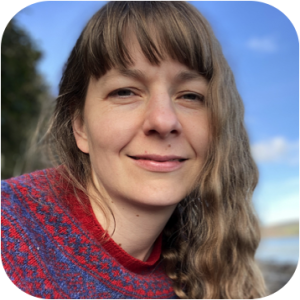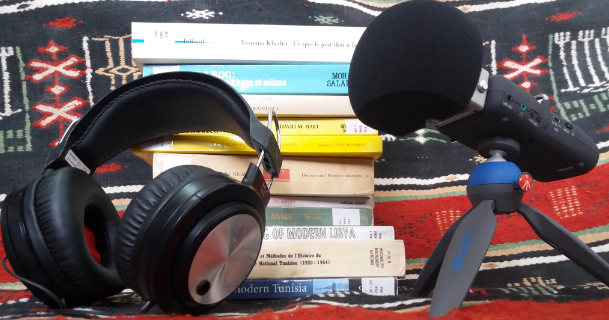
58.7K
Downloads
209
Episodes
Maghrib in Past & Present | Podcasts is a forum in which artists, writers, and scholars from North Africa, the United States, and beyond can present their ongoing and innovative research on and in the Maghrib. The podcasts are based on lectures, live performances, book talks, and interviews across the region. Aiming to project the scientific and cultural dynamism of research in and on North Africa into the classroom, we too hope to reach a wider audience across the globe.
Episodes

Wednesday Jan 20, 2021
Wednesday Jan 20, 2021
Episode 104: Of Jinn Theory and Germ Theory: Translating Bacteriological Medicine and Islamic Law in Algeria
In this podcast, focusing on colonial Algeria c. 1890 to 1940, Dr. Hannah-Louise Clark explores how Muslim intellectuals and ordinary people learned about microbes and responded to bacteriological medicine. Many Algerians feared invisible spirits (jinn) and sought the healing powers of saints and exorcists. Was it then permitted to use French treatments and follow rules of Pasteurian hygiene? Specialists in Islamic law, other intellectuals, and unlettered villagers showed a persistent concern with these and other questions in the wake of colonial conquest and violence, as novel techniques, therapeutics, and forms of epistemic authority were introduced, and new visions of religious orthodoxy and national revival were formulated. Examining material culture and writings across a range of genres and formats, Dr. Clark argues that Islamic tradition and law were integral to the emerging science and culture of microbes in 20th-century Algeria. While Islamic reformists sought to displace jinn theories, other Algerian intellectuals and colonial officials found it convenient to explain germs in terms of jinn. Both French and Muslim elites combined religious principles and hygiene to advance their competing projects of political and social control targeted at the Muslim family, thereby attempting to displace women’s jinn-based practices.
Dr Hannah-Louise Clark is lecturer in global economic and social history at the University of Glasgow. Her work investigates cross-cultural translations of knowledge and professional hierarchies, technology transfer, state governance, and epidemics in North Africa, c. 1800-present, with a current focus on Algeria. Clark pays particular attention to neglected archives and Arabic-language sources to document and analyse long-term local, regional, and trans-regional trends in health and social welfare. Her research has informed teaching on history of medicine within Algeria’s medical curriculum, and has been recognized and supported by awards and grants from the National Endowment of the Humanities “Constructing African Medical Heritage: Legacies of Empire and the Geopolitics of Culture, 1890–1990,” with Helen Tilley [PI] and Michael Afolayan, 2020-2023), The Leverhulme Trust, Princeton University Committee on Academic Programmes for Alumni, and the US Department of Education DDRA Fellowship and others. Clark also collaborated with cultural heritage professionals and students at the University of Glasgow to develop “global history hackathons” as a format for research incubation and teaching with archives and museum collections. She is currently working on a book manuscript on race, religion, and the Pasteurian public health worldview in early 20th-century Algeria.
This episode is part of “Health and Humanities in the Maghrib,” a lecture series by the American Institute for Maghrib Studies (AIMS), organized by the Centre d'Études Maghrébines à Tunis (CEMAT) and the Centre d'Études Maghrébines en Algérie (CEMA), in close collaboration with the Tangier American Legation Institute for Moroccan Studies (TALIM). It was recorded on the 26th of October 2020 between Glasgow, Oran, Oxford, and Tunis. James McDougall, Professor of History at St. Anthony's College, University of Oxford, moderated the lecture and debate.
To see related slides, visit our web site: www.themaghribpodcast.org
We thank our friend Ignacio Villalón for his guitar performance for the introduction and conclusion of this podcast.
Realization and editing: Hayet Lansari, Librarian, Outreach Coordinator, Content Curator (CEMA).

No comments yet. Be the first to say something!